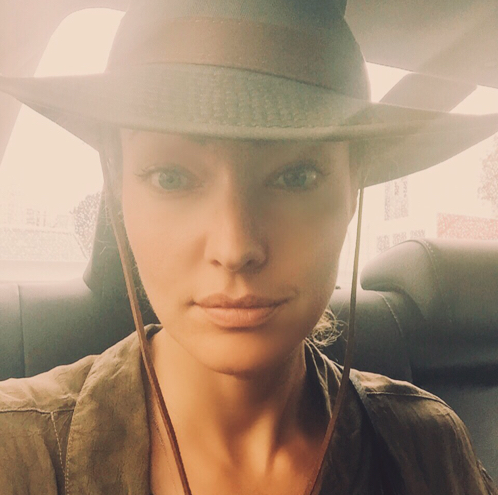Horn Maker
Diving into the labyrinth of rhino horn trafficking, a filmmaker embarks on a decade-long journey to discover that tangled within the web of bureaucracy and ideology is a groundbreaking biotechnology that has the potential to transform wildlife conservation.
The Reason:
Wildlife conservation is often brought to the public’s attention with glossy brochures and billboards, urging us to protect our favorite megafauna be they rhinos, elephants, and giraffes, or tigers and panda bears. Yet what has been largely missing from public awareness and dialog is how wildlife conservation is performed on the ground, by whom, and at what cost. At the core of this narrative is the contrast between the local African communities, whose lives are inextricably linked to their natural surroundings, and the often Western approaches of conservation NGOs. The film explores how traditional African hunters, uprooted from their land and culture, are pushed into poaching for survival while governing institutions, detached from local realities, impose top-down conservation strategies. This dynamic creates a tension where wildlife is seen as being protected at the expense of local communities, leading to a lack of incentive for collaboration and a deep-rooted sense of alienation.
The Film:
Wildlife trafficking is the third largest illegal trade in the world - with rhino horns being a commodity more valuable than gold and cocaine combined. Decades and many millions have been spent to stem the flow of poaching, but still, wild rhino populations teeter on the brink of extinction. Now, with the advent of biotechnology and DNA printing, a new idea is born. Matthew Markus, an innovator from the tech world, proposes a daring plan: use 3D printing technology to create bio-identical rhino horns to sabotage, saturate, and collapse the illegal trade by exploiting its inherent greed from within. For nearly a decade, we have followed Markus across Africa and Southeast Asia as he navigates the complexities of conservation efforts, exposing the striking contrasts in worldviews, from the deeply rooted cultural traditions and trafficking networks to the cutting-edge realm of high-tech innovations, pushing the boundaries of what it takes to preserve wildlife in the 21st century.
Director’s Note:
In the mid-2010s, the crisis of elephant and rhino poaching was escalating rapidly. They were dying in such numbers that these majestic giants were on track to go extinct within a decade. Since I was a child, these animals have moved me in ways that humans rarely could. I couldn’t just passively read about it anymore - what was wrong with humans? How could we be doing this, and what was being done to stop it? As a filmmaker, I needed to investigate the heart of the matter, so I strapped on a camera and dove in head-first into the black market supply chain - beginning with who I believed to be the perpetrators: the poachers. With the help of local guides, I traveled across South Africa and Mozambique, staying for weeks with local communities and interviewing hundreds of tribesmen, local chiefs, farmers, wildlife conservationists, and government officials. The more I learned, the more it became clear that the illegal wildlife trade was an intricate web so complex that I couldn't imagine how this problem could ever be resolved. And then, I learned that at the same time, across the ocean, an idea was born that was so revolutionary that it promised to break the black market rhino horn trade - definitively. It stopped me in my tracks and catapulted me for nearly a decade across four different continents, chasing a story about the most controversial and crazy idea for wildlife conservation: rhinos and how to save them. It is my hope that following the ripple effect created by a single idea thrown into a vast ocean of wildlife protection will expand our understanding of the system that governs wildlife conservation and its crucial need to harmonize between the sanctity of wildlife and the inherent rights and dignity of humans.
I am a Ukrainian-born documentary producer/director/writer. Co-founder of the documentary film production company GroundStorm Media, producing films for Netflix, Hulu, and PBS. Co-founder of a patent-held zero-knowledge technology, Tiaki.org, built to support sexual violence survivors, and the president of Mom, I See Foundation, a children’s war art archive built on the blockchain. Previously, a ten-year veteran in experiential activations, executive producing for Activision: Call of Duty Black Ops Game Launch, Microsoft Zune Launch, and Sundance Film Festival's Apple+ activation.
Our Team:
Directed and Produced by Juliette Marquis
Edited by Marco Gianstefani
Written by Juliette Marquis and Marco Gianstefani
Produced by James Keach, Andrew Troy, Elisa Bonora
Executive Produced by Marco Chiappa and Francesca Cimolai
Executive Produced by Ann Mugglebee
Executive Produced by Oreet Rees and Mark Cancielliere
Executive Produced by Camillie Hardman and Jason Holdsworth
Cinematographers Alexander Oleynikov and Loren Wheeler
Generative AI Animation by James Gerde and Marco Gianstefani
In Association with Voluntas Ventures




